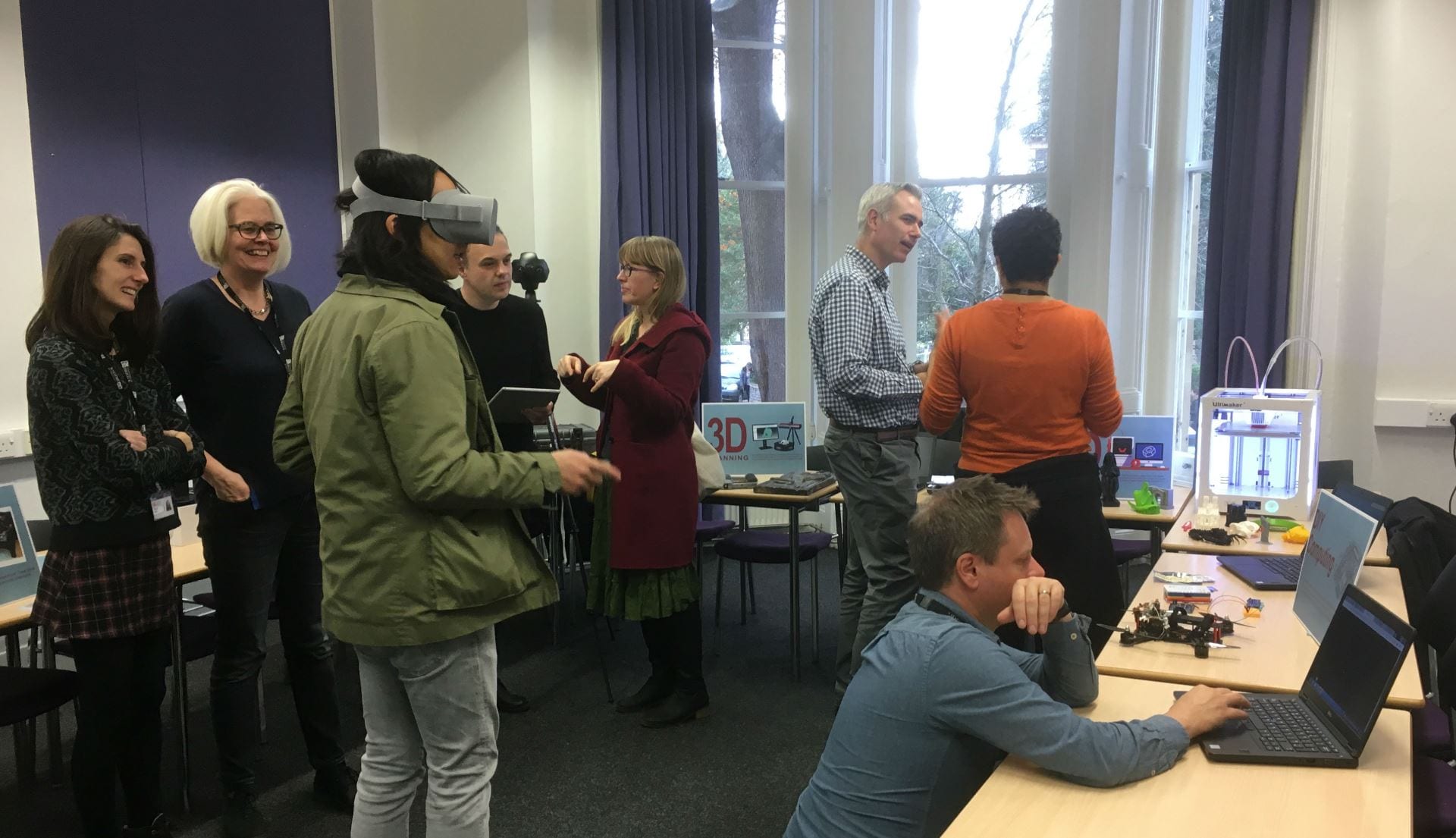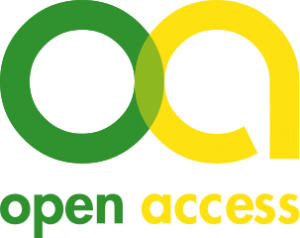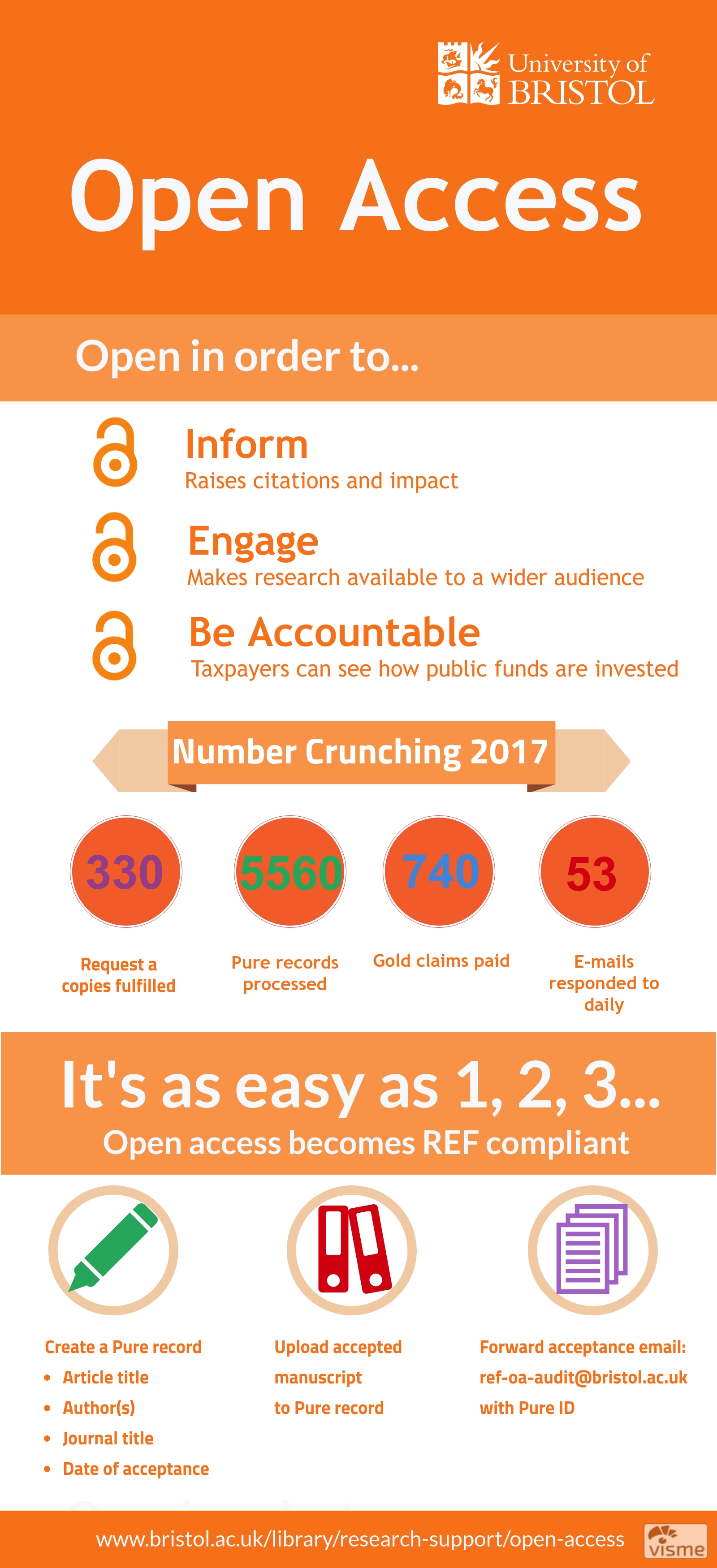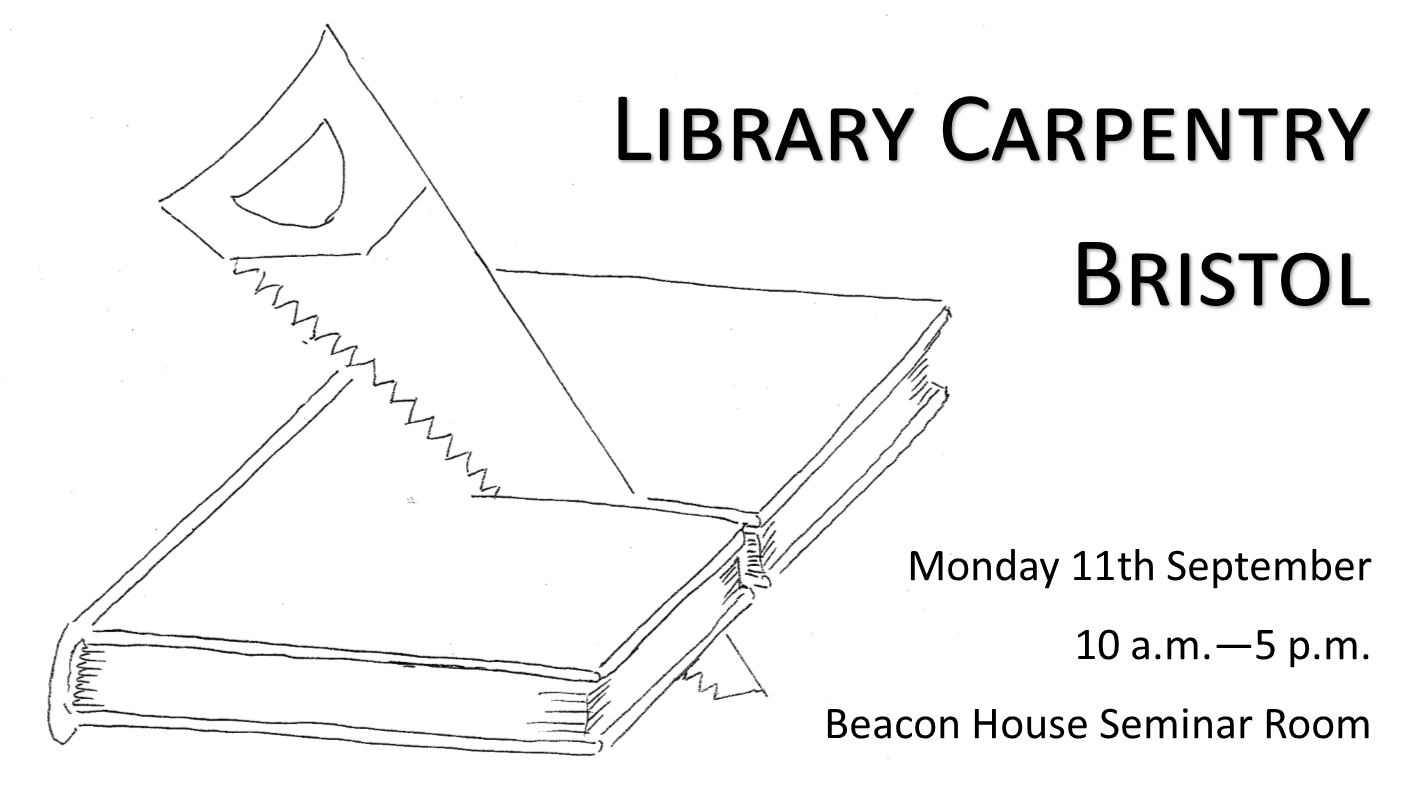The Jean Golding Institute’s Data Week 2019 (20th – 24th May) is a week of workshops, talks and other events on data science and reproducible research, including data analysis, visualisation, coding and more. The Library’s Research Support team is running two events as part of Data Week – our regular “Introduction to Open Research” and a brand new workshop on sensitive data: “Managing ethically sensitive data: from planning to sharing”. The full programme for Data Week is available at https://www.bristol.ac.uk/golding/get-involved/data-week-2019/.
The “Introduction to Open Research” workshop is aimed at postgraduate and early career researchers and acts as a basic introduction to Open Access (OA), research data management, and research metrics. Attendees will cover OA and research data sharing requirements of the Research Excellence Framework (REF), the University, and of major funding bodies. There will be an overview of the different research support systems in place at the University to help researchers meet these requirements, including the Research Data Storage Facility (RDSF), the data.bris Research Data Repository, and a live demonstration of how to add publications to Pure. Finally, attendees will be given a brief introduction to key research metrics, how these are calculated, and how they can access and benchmark their personal research metrics data.
“Managing ethically sensitive data: from planning to sharing” is a new workshop aimed at researchers at any career stage who are dealing with ethically sensitive data; that is, data involving humans or at-risk species. In practice, it is likely to be most relevant for researchers in health and social sciences working with human research participants. Attendees will learn how to safely deal with personal data in a research context, including participant rights and researcher responsibilities with regards to the General Data Protection Regulation (GDPR) and the Data Protection Act 2019 (DPA 2018), what services the University provides to help researchers collect and store sensitive data, and how to construct consent forms and patient information sheets that will permit data sharing at the end of a project. Finally, attendees will be given an introduction into methods for preparing sensitive data for sharing: this will include an overview of documentation requirements and the different data sharing platforms and mechanisms available to researchers, as well as an introduction to the concepts of formal, statistical and functional anonymisation and how these can be applied to datasets to reduce disclosure risk.
We’ve had a great deal of interest in the latter workshop, and while this weeks’ event is sold out we do plan to repeat the sensitive data workshop later in the year. We’ll also be expanding our online sensitive data bootcamp to include some of the issues covered in the live workshop.







